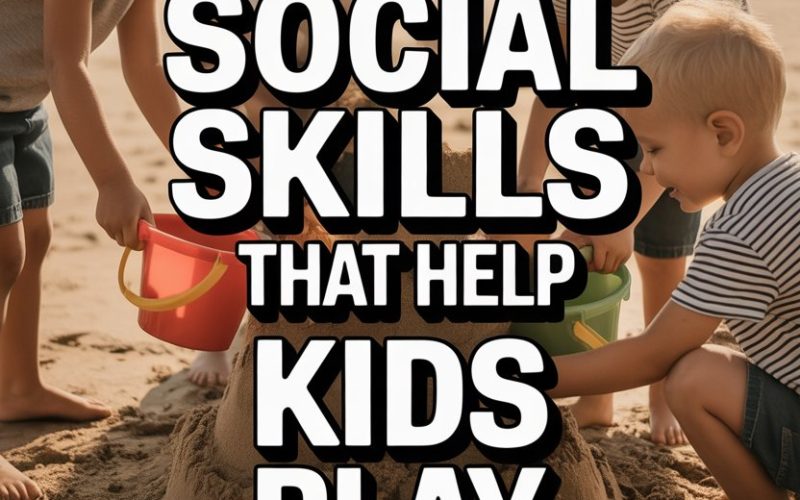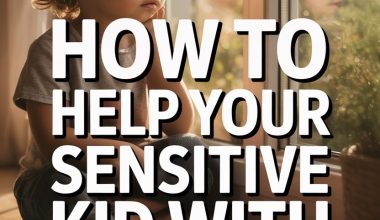Parenting can sometimes feel like refereeing a championship wrestling match—except the wrestlers are half your size and much, much louder.
The dream, of course, is for children to play together harmoniously, perhaps with the odd squabble thrown in for dramatic effect.
Turns out, there are specific social skills that make these precious moments of peace a little more likely. Let’s get into the five biggies that can turn your home from a battleground to a (mostly) chill playground.
1. Listening With Their Whole Body
It’s a universal truth: children are world-class at selective hearing.
Ask a child to tidy up, and suddenly their ears are purely decorative. Yet, listening is foundational when it comes to playing peacefully with others.
Whole body listening means more than just ears working overtime. Eyes looking at the speaker, hands still, mouth quiet (unless it’s their turn), and mind focused on what’s being said—it’s a tall order for little humans.
Still, teaching this skill pays off in spades.
Kick off with a silly game: “Simon Says Listen!” Give instructions, sometimes using your regular voice and sometimes whispering, to encourage them to really tune in.
Model it yourself by crouching down, making eye contact, and repeating back what your child says. Suddenly, you’ll notice your child mirroring that attention with siblings or friends.
Research published in the Journal of Experimental Child Psychology highlights the link between active listening and positive peer relationships.
When kids listen, they understand not just words but feelings, rules, and those subtle playground negotiations about whose turn it is to play with the sparkly dinosaur.
2. Sharing—The Real MVP
Sharing is the classic test of childhood diplomacy.
The urge to hoard every toy in a five-metre radius is strong, especially when cousins come to visit. Yet, sharing remains the social skill that unlocks the door to actual, civilised play.
You might have a natural sharer. Or you might have a child who treats every toy as a precious artefact from an ancient Egyptian tomb.
Either way, sharing is teachable—it just takes time and, sometimes, a little patience (and a cuppa for you).
Try using a kitchen timer: when the bell rings, it’s the next child’s turn. This takes the pressure off you playing Judge Judy, and gives kids a tangible sense of fairness.
Narrate what’s happening: “It’s Charlotte’s turn with the truck now, and when the timer rings, it’ll be Jasper’s turn.” Over time, kids realise sharing leads to longer, happier games—and fewer meltdowns.
A 2020 study in Child Development found that even preschoolers can learn the value of taking turns and sharing when parents and carers model and reinforce these behaviours. So, share your chocolate. The kids are watching.
3. Using Words Not Wrongs
The phrase “use your words” is practically tattooed on every parent’s brain, but it’s a lifesaver during playtime drama.
Kids—particularly younger ones—are still learning how to express frustration, disappointments, or even excitement without lunging for the nearest soft toy missile.
Teaching children how to express themselves turns potential arguments into conversations. Create a ‘feelings chart’ with pictures of faces showing emotions.
When a child storms over, red-faced, encourage them to point to the face that matches their mood. Help them translate that into words: “I feel upset because I wanted the blue car.”
Role-play works wonders here. Take turns acting out tricky situations and practice saying things like, “Can I have a turn?” or “I’m feeling left out.” You’re essentially scripting peace talks for future playground negotiations.
A meta-analysis on social-emotional learning found that kids who can communicate their feelings and needs are not only better at resolving conflicts, but also less likely to be targeted by bullies. Turns out, words really can be mightier than Nerf guns.
4. Seeing Things from Another View
Empathy seems like a big concept for small people, but even toddlers can start to understand how others feel. Ever noticed how a child will try to comfort a friend who’s crying? That’s empathy peeking through.
Games are perfect for growing empathy.
Reading stories together and asking, “How do you think the dragon feels right now?” or “What would you do if you were the princess?” helps children practice stepping into someone else’s shoes (glass slippers, in this case).
During playdates, highlight moments when children show kindness or notice someone else’s feelings: “That was thoughtful, giving Max the last piece of puzzle.”
Over time, children learn that their actions affect others—a crucial lesson in keeping the peace.
A study out of Harvard’s Making Caring Common project found that regular conversations about feelings, supported by plenty of “catching them being kind,” builds empathy muscles for life.
Who knew creating a household habit of talking about feelings could prep your child for the Nobel Peace Prize?
5. Solving Problems Without Grown-Ups Jumping In
Every parent’s secret fantasy: children sorting things out on their own, while you sneak an extra biscuit in the kitchen.
Problem-solving is a skill that grows with practice. Instead of swooping in at the first sign of a squabble, give your child tools to sort things out.
If two kids want the same toy, ask, “What could you do to figure this out together?” Offer choices, but let them steer the conversation.
Introduce the “peace table” (it can be any spot in your lounge). When arguments bubble up, encourage kids to sit there and talk it out. Keep prompts handy: “What’s the problem? How do you feel? What’s a fair solution?”
Over time, this turns conflict into a chance for creative thinking—not just a chorus of “Mummmm!”
The American Academy of Pediatrics emphasizes that children who practice conflict resolution skills early become more confident and resilient, both in and out of the home.
The result? Kids who can turn a tug-of-war into a giggle-fest.
When the Playroom Goes Quiet
No one expects a household with children to be permanently peaceful. (Let’s not get delusional.) Still, teaching these five social skills is a game-changer.
Listening, sharing, using words, practicing empathy, and solving problems—these superpowers build not just quiet playtimes, but lifelong friendships and a little more harmony in the everyday chaos.
And when your children finally manage an hour of peaceful play? Put your feet up and savour the moment.
You’ve earned it. Tea, anyone?




